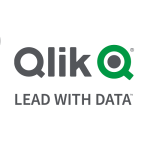What is our primary use case?
My primary use case is getting data from the sensors.
The sensors are installed on the various equipment across the plant, and this sensor gives us a huge amount of data. Some are captured on a millisecond basis.
What we are able to do is the data into Azure Data Factory, and it has allowed us to scale up well. We are able to utilize that data for our predictive maintenance of the assets of the equipment, as well as the prediction of the breakdown. Specifically, we use the data to look at predictions for future possible breakdowns. At least, that is what we are looking to build towards.
How has it helped my organization?
It has helped us to take care of a lot of our analytics requirements. We are running a few analytics models on Data Factory, which is very helpful.
What is most valuable?
The overall architecture has been very valuable to us. It has allowed us to scale up pretty rapidly. That's something that has been very good for us.
The solution can scale very easily.
The stability is very good and has improved very much over time.
What needs improvement?
My only problem is the seamless connectivity with various other databases, for example, SAP. Our transaction data there, all the maintenance data, is maintained in SAP. That seamless connectivity is not there.
Basically, it could have some specific APIs that allow it to connect to the traditional ERP systems. That'll make it more powerful. With Oracle, it's pretty good at this already. However, when it comes to SAP, SAP has its native applications, which are the way it is written. It's very much AWS with SAP Cloud, so when it comes to Azure, it's difficult to fetch data from SAP.
The initial setup is a bit complex. It's likely a company may need to enlist assistance.
Technical support is lacking in terms of responsiveness.
Buyer's Guide
Azure Data Factory
April 2025
Learn what your peers think about Azure Data Factory. Get advice and tips from experienced pros sharing their opinions. Updated: April 2025.
847,772 professionals have used our research since 2012.
For how long have I used the solution?
We've been using the solution roughly for about a year and a half.
It hasn't been an extremely long amount of time.
What do I think about the stability of the solution?
From a security perspective, the product has come up a long way.
With the Azure Cloud Platform, in 2015, I was in a different organization and it was not reliable at all. It has become much more reliable since then and is very stable at the moment. It's reliable.
What do I think about the scalability of the solution?
The solution is pretty easy to scale on Azure. I have found it to be very efficient and it is pretty fast. You just need to get the order done properly, and then you will be able to scale up.
We have about five to seven people using it at this time.
How are customer service and support?
Technical support isn't the best, as it's a bit delayed at times.
Whenever we need some urgent support, wherein we have to restart or something has stuck, it takes a bit of time. Some improvements can be made in the customer support area.
In summary, we are not completely satisfied with the support.
How was the initial setup?
The initial setup is not straightforward. It's a bit complex. A company may need to hire someone to assist them with the process.
The solution's deployment took about eight weeks.
What about the implementation team?
I had to hire technical experts who could help us in the process. We could not handle the implementation ourselves.
What's my experience with pricing, setup cost, and licensing?
Cost-wise, it is quite affordable. It's not a factor in the decision-making process when it comes to whether or not we should use it. That said, the pricing is very reasonable.
Which other solutions did I evaluate?
We evaluated both Oracle and SAP before choosing Azure Data Factory.
What other advice do I have?
We are customers and end-users.
I'd advise companies considering the solution that they need to be very clear about the use case they are trying to address. They need to understand the data ecosystem that they have and what percentage of data is coming in from the various ERP systems.
Do that study properly and then come up with the right solution. If, for example, it is that the underlying data that they want to analyze is more than 60% residing in SAP, then probably Azure would not be the right platform to move ahead with.
We're mostly satisfied with the product. However, getting it connected to closed ERP systems like SAP would make it more powerful.
I would rate the solution eight out of ten.
Which deployment model are you using for this solution?
Private Cloud
Disclosure: I am a real user, and this review is based on my own experience and opinions.





















